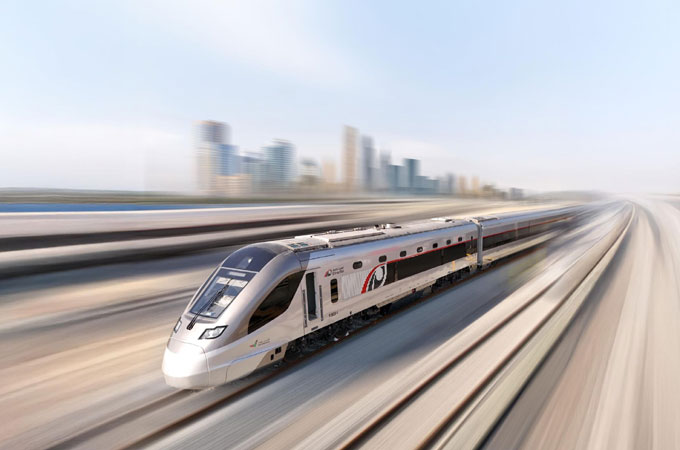
The Gulf region is witnessing an unprecedented rail boom that is setting the stage for a new era of regional integration and sustainable economic growth, according to David Franks, Managing Director of Keolis MHI.
He said the transformation is being powered by multi-billion-dollar investments in modern infrastructure across the GCC.
Franks pointed out that projects such as Etihad Rail in the UAE, the Hafeet Rail connection with Oman, and Saudi Arabia’s Landbridge are central to a broader vision of regional connectivity.
These initiatives, he added, are designed to link cities, ports, and economic hubs through a seamless network.
The 2,177-km GCC Railway project, he explained, reflects the shared ambition of Gulf states to create an integrated transport ecosystem.
Franks highlighted the role of rail in achieving environmental sustainability, calling it one of the most energy-efficient and low-emission modes of transport.
He pointed out that the region has already begun pioneering efforts in this area, most notably with Saudi Arabia’s trial of a hydrogen-powered train, the first of its kind in the Middle East.
The industry expert stressed that the ongoing transformation in Gulf transportation is underpinned by advanced technologies, including artificial intelligence, predictive maintenance systems, smart ticketing and real-time passenger updates.
These innovations, he said, are enhancing passenger experience while improving efficiency, safety, and operational excellence.
He also emphasized Keolis MHI’s commitment to this evolution, noting the company’s global operating experience across four continents.
"We are actively transferring international best practices to the region, ensuring that safety, innovation, and quality are embedded into every aspect of operation," stated Franks.
Beyond operations, Franks said Keolis MHI is also contributing to the development of smart, connected cities. This includes investing in local talent, supporting Emiratisation and localisation initiatives, and improving last-mile connectivity to enhance quality of life and foster inclusive transport systems, he added.
He underscored the importance of strong public-private partnerships in delivering long-term success for large-scale rail infrastructure.
According to Franks, close collaboration between governments and operators is critical to ensure that projects are delivered efficiently, resiliently, and in line with public expectations.
Outlining key milestones in the region’s rail agenda, he said the second phase of Etihad Rail commenced operations in February 2023, extending the network to 900km. While freight services are operational, passenger services are still under planning.
He also referenced the Hafeet Rail project - a $3 billion joint venture between Etihad Rail, Oman Rail and Mubadala - which aims to link Abu Dhabi with the port city of Sohar via a 303-km line.
On the Saudi front, Franks said the Landbridge Project consists of a 950-km freight line between Jeddah and Riyadh, and an additional 115-kilometre track connecting Dammam to Jubail. This network, he stated, will significantly boost east-west freight movement across the Kingdom.
The top Keolis MHI official also hailed Saudi Arabia’s hydrogen train pilot, conducted in 2024, as a regional milestone that signals a broader shift toward clean and sustainable transport technologies.
Looking ahead, he said the GCC Railway Network, slated for completion by 2030, will redefine regional mobility by streamlining trade and facilitating smooth cross-border passenger movement across Gulf nations.
Franks concluded by stating that the region's rail renaissance goes beyond infrastructure development.
It represents a global model for modern, sustainable, and tech-enabled transport systems built on innovation, collaboration, and a forward-looking vision, he added.-TradeArabia News Service
